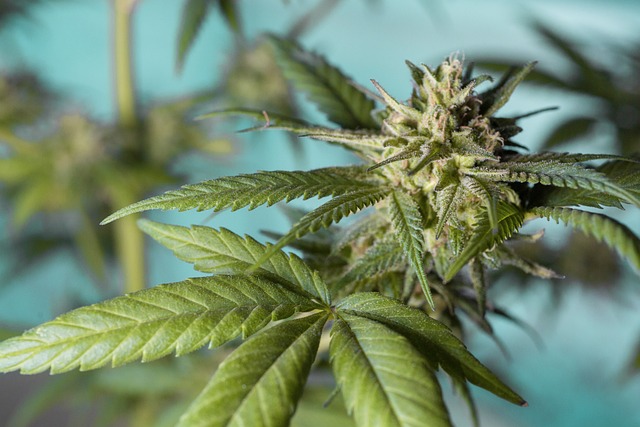In North Carolina, THCA flower is legally permissible under both state and federal regulations, provided it contains no more than 0.3% THC by dry weight. The 2018 Farm Bill federalized hemp and its derivatives like THCA, enabling states to create their own frameworks for use and sale. North Carolina's Industrial Hemp Pilot Program, overseen by the Department of Agriculture and Consumer Services, sets forth state-specific guidelines that align with federal standards. As legal landscapes can shift with new legislation or policy updates, consumers and businesses must stay informed about the evolving status of THCA products in the state. The recent liberalization of cannabis laws, including the legalization of CBD products with trace amounts of THCa, reflects a growing recognition of their therapeutic potential. This progression, from the Compassionate Care Act of 2015 to the current regulatory environment, underscores North Carolina's commitment to exploring the benefits of cannabinoids like THCa while maintaining stringent regulations for public safety and health. THCA legal in North Carolina is a clear indication that these products are permissible under the current law, making it essential for anyone interested in THCA flower products to understand the nuances of state and federal legislation.
Exploring the intricacies of THCA flower legality and cultivation in North Carolina requires a nuanced understanding of both state and federal regulations. As the conversation around cannabis continues to evolve, it’s crucial for residents and enthusiasts to stay informed on the specifics of THCA’s legal status within the state. This article delves into the current landscape of THCA flower legality in North Carolina, providing a comprehensive guide from navigating state laws to understanding the ins and outs of home cultivation. From the historical context of cannabis laws to practical tips for those looking to grow their own THCA flowers, this piece aims to serve as your definitive resource for all things related to THCA legality and cultivation in North Carolina. Whether you’re interested in purchasing, growing, or simply want to ensure compliance with local regulations, this article will guide you through the key points and steps necessary to engage with THCA flower legally and responsibly.
- Understanding THCA Flower Legality in North Carolina: A Comprehensive Guide
- 1. Historical Context of Cannabis Laws in NC
Understanding THCA Flower Legality in North Carolina: A Comprehensive Guide

Navigating the legality of THCA flower, specifically in North Carolina, requires a clear understanding of both state and federal laws. As of the latest updates, THCA, or tetrahydrocannabinolic acid, a non-psychoactive precursor to THC found in raw cannabis, is legal within the boundaries of North Carolina under certain conditions. The 2018 Farm Bill federally legalized hemp and its derivatives, which include THCA, provided they contain less than 0.3% THC on a dry weight basis. This legislation paved the way for states to create their own regulations regarding hemp-derived products.
In North Carolina, the Industrial Hemp Pilot Program allows for the cultivation and processing of industrial hemp under strict guidelines set forth by the state Department of Agriculture and Consumer Services. The program’s regulations are designed to ensure that THCA flowers sold in the state comply with both state and federal laws. Consumers interested in purchasing or using THCA flower products must be aware that these products must be derived from hemp and contain no more than the legal limit of THC. It’s crucial for retailers, manufacturers, and consumers to stay informed about these regulations as they can change with new legislation or clarifications from state authorities. Understanding the intricacies of THCA legality in North Carolina is essential for anyone looking to engage with these products within the confines of the law.
1. Historical Context of Cannabis Laws in NC

North Carolina’s relationship with cannabis has been a complex tapestry woven through the annals of its legislative history. In recent years, the state has seen significant shifts in its cannabis laws, with particular attention given to the therapeutic potential of certain cannabinoids. The legalization of CBD products, including those containing THCa, marks a pivotal moment for North Carolina’s cannabis landscape. THCa, known for its medicinal properties without the psychoactive effects associated with THC, has garnered interest both scientifically and recreationally. This shift follows a trajectory of gradual liberalization, which began with the Compassionate Care Act of 2015, allowing for the use of CBD oil to treat intractable epilepsy. Building on this foundation, the state has continued to evolve its policies, reflecting a broader national trend towards more progressive cannabis legislation. As of early 2023, North Carolina’s laws permit the sale and possession of hemp-derived THCa products, provided they contain no more than 0.3% THC by dry weight, aligning with federal guidelines. This legislative evolution underscores the state’s recognition of the potential benefits of cannabinoids like THCa while navigating the delicate balance between access and regulation.
North Carolina’s evolving stance on cannabis, particularly concerning THCA flower legality, presents a nuanced landscape for enthusiasts and consumers alike. This article has navigated the historical context of cannabis laws within the state, offering clarity on current regulations and providing guidance for those interested in understanding the legalities surrounding THCA flower in North Carolina. As legislative developments continue to shape the future of cannabis use, it remains imperative for individuals to stay informed on the latest legal standards to ensure compliance with state laws. For updates and further insights into cannabis-related legislation, continued due diligence and attention to official sources are advised.
